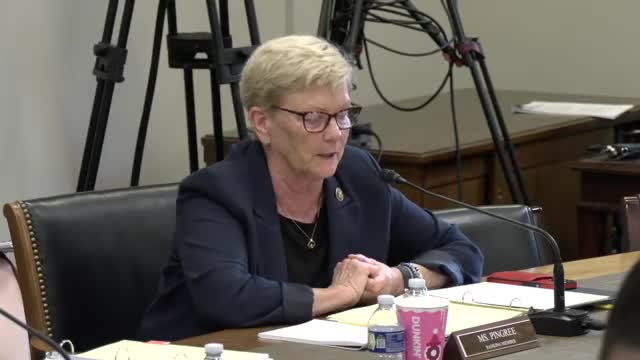Forensic nursing program gains traction in Native communities to enhance trauma-informed care
This article was created by AI summarizing key points discussed. AI makes mistakes, so for full details and context, please refer to the video of the full meeting. Please report any errors so we can fix them. Report an error »

On November 21, 2024, the U.S. House Committee on Appropriations convened for an oversight hearing focused on the crisis of Missing and Murdered Indigenous Women (MMIW). The session featured a panel discussion that highlighted critical issues surrounding the treatment of victims and the systemic challenges faced by Indigenous communities.
The meeting began with an acknowledgment of the historical injustices that have contributed to the ongoing crisis. Panelists emphasized the importance of a healing process for families affected by violence and the need for trauma-informed care. A significant point of discussion was the forensic nursing program, which has shown promise in providing essential medical and investigative support to victims. The panelists advocated for expanding this program to ensure that all Indigenous communities have access to these vital services.
The conversation also addressed the current limitations of forensic nursing in Native communities, where resources are often scarce. Panelists noted that while some programs exist, they are not widespread enough to meet the needs of all tribes. The integration of forensic nursing into Indian Health Services (IHS) was proposed as a means to enhance support and improve outcomes for victims.
Workforce capacity was another critical topic. The panel discussed the need for trained medical forensic examiners who can handle multiple responsibilities, including sexual assault cases. The importance of multidisciplinary teams and community crisis response teams was highlighted as a way to provide comprehensive care and support to victims.
Additionally, the panel examined the role of federal initiatives like Operation Lady Justice, which aims to address the jurisdictional challenges that complicate investigations into MMIW cases. While some progress has been noted in specific regions, there remains a call for broader implementation and support for these initiatives to ensure timely and effective responses to cases of violence against Indigenous women.
In conclusion, the hearing underscored the urgent need for systemic changes to address the crisis of Missing and Murdered Indigenous Women. The discussions revealed a consensus on the importance of expanding forensic nursing programs, enhancing workforce capacity, and improving federal support for Indigenous communities. The committee plans to follow up on these discussions to explore actionable steps toward addressing these critical issues.
The meeting began with an acknowledgment of the historical injustices that have contributed to the ongoing crisis. Panelists emphasized the importance of a healing process for families affected by violence and the need for trauma-informed care. A significant point of discussion was the forensic nursing program, which has shown promise in providing essential medical and investigative support to victims. The panelists advocated for expanding this program to ensure that all Indigenous communities have access to these vital services.
The conversation also addressed the current limitations of forensic nursing in Native communities, where resources are often scarce. Panelists noted that while some programs exist, they are not widespread enough to meet the needs of all tribes. The integration of forensic nursing into Indian Health Services (IHS) was proposed as a means to enhance support and improve outcomes for victims.
Workforce capacity was another critical topic. The panel discussed the need for trained medical forensic examiners who can handle multiple responsibilities, including sexual assault cases. The importance of multidisciplinary teams and community crisis response teams was highlighted as a way to provide comprehensive care and support to victims.
Additionally, the panel examined the role of federal initiatives like Operation Lady Justice, which aims to address the jurisdictional challenges that complicate investigations into MMIW cases. While some progress has been noted in specific regions, there remains a call for broader implementation and support for these initiatives to ensure timely and effective responses to cases of violence against Indigenous women.
In conclusion, the hearing underscored the urgent need for systemic changes to address the crisis of Missing and Murdered Indigenous Women. The discussions revealed a consensus on the importance of expanding forensic nursing programs, enhancing workforce capacity, and improving federal support for Indigenous communities. The committee plans to follow up on these discussions to explore actionable steps toward addressing these critical issues.
View full meeting
This article is based on a recent meeting—watch the full video and explore the complete transcript for deeper insights into the discussion.
View full meeting